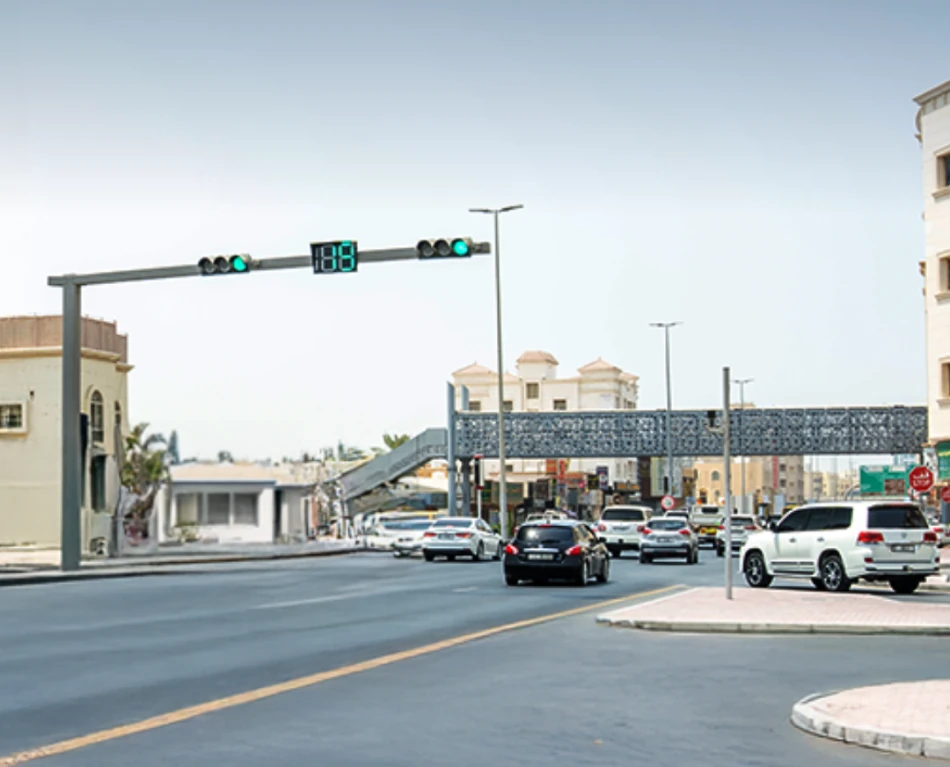
Ajman Municipality Rolls Out Innovative 'Green Wave' Traffic System on Sheikh Zayed and Sheikh Ammar Streets
Ajman Deploys Smart Traffic System to Transform Urban Mobility
The Emirate of Ajman has launched an intelligent "Green Wave" traffic management system on two major arterial roads, marking a significant step toward creating a seamless urban transportation network. The initiative, implemented on Sheikh Zayed Street in Al Helio area and Sheikh Ammar Street, represents a broader shift across the UAE toward smart city infrastructure that prioritizes efficiency and environmental sustainability.
Technology That Keeps Traffic Moving
The Green Wave system synchronizes traffic lights across multiple intersections, allowing vehicles to pass through several traffic signals without stopping when traveling at designated speeds. This intelligent coordination reduces the stop-and-go pattern that typically characterizes urban driving, creating smoother traffic flow throughout the day.
According to Khamis Salem Al Matroshi, Manager of Operations and Maintenance in the Roads and Infrastructure Department, the system delivers measurable benefits beyond convenience. Reduced fuel consumption and lower emissions emerge naturally from fewer traffic stops, while journey times decrease significantly for commuters and commercial vehicles alike.
Strategic Vision Behind Smart Infrastructure
This deployment aligns with Ajman's Vision 2030, which emphasizes building an integrated and sustainable transportation system. The emirate is following a comprehensive plan to connect all traffic light intersections through a smart network using globally recognized technologies.
The timing reflects broader regional trends. The UAE has positioned itself as a testbed for smart city innovations, with Dubai's smart traffic systems already demonstrating substantial improvements in urban mobility. Singapore's adaptive traffic management and Barcelona's smart intersection technologies provide international benchmarks for such implementations.
Economic and Environmental Impact
For businesses operating in Ajman, improved traffic flow translates to reduced logistics costs and more predictable delivery schedules. The environmental benefits compound over time – fewer idling vehicles mean measurably lower carbon emissions, supporting the UAE's broader sustainability commitments.
The system's effectiveness depends heavily on driver compliance with speed limits, creating an interesting behavioral incentive structure where following traffic rules directly benefits individual journey times.
Scaling Smart Transportation
Ajman's approach suggests a methodical rollout strategy rather than city-wide implementation. Testing the system on two key corridors allows authorities to refine algorithms and address technical challenges before expanding to additional routes.
This measured approach mirrors successful smart traffic deployments elsewhere. Cities that implement such systems gradually tend to achieve better long-term results than those attempting comprehensive overhauls simultaneously.
The initiative positions Ajman to attract businesses and residents who prioritize efficient urban infrastructure, potentially boosting the emirate's economic competitiveness within the broader UAE market. As traffic management becomes increasingly sophisticated across the region, cities with superior mobility infrastructure may gain significant advantages in attracting investment and talent.
Most Viewed News

 Sara Khaled
Sara Khaled






